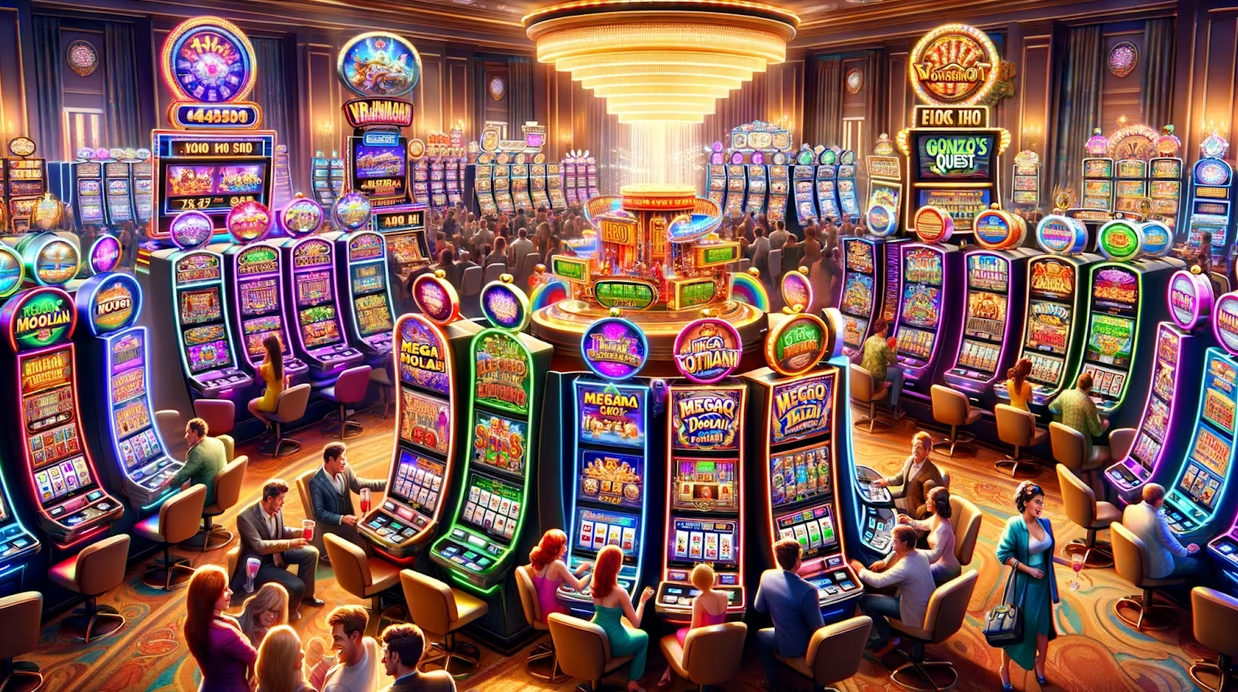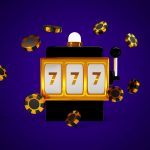
Despite the popularity of slot games, casinos still make most of their profits from table games and live dealer tables. Many online casinos feature a range of casino games, including video slots, which can be found with jackpots as large as $100,000.
Unlike blackjack, where players can count cards, there is no system that cuts into the house edge on slot machines. This has prompted some unsavory “hyena” types to attempt to beat the game by counting machine outcomes, which does not work.
Symbols
When a player inserts cash or, in “ticket-in, ticket-out” machines, a barcoded paper ticket, the reels spin and symbols land to determine pay combinations. The player then earns credits based on the paytable. The payouts may be displayed as a total or a percentage of the amount wagered. The percentages are rounded to the nearest hundredth.
Modern slot machines use microprocessors to assign different probabilities to individual symbols on each reel. These probabilities are closely guarded secrets. For this reason, players can sometimes be fooled into thinking a machine is due to pay out, even though all machines yield a normal payback over hundreds of thousands of plays.
Many casino players are attracted to the idea that slot machines can be beaten, particularly if they have been losing for a long time. However, psychologists have found that people who play video slots reach a debilitating level of involvement with gambling three times faster than those who play table games.
Payouts
In video slot games, the payouts are fixed and multiplied by the number of coins per spin. This allows players to improve their chances at winning by increasing their wagers. However, the exact probabilities are a closely guarded secret and are not displayed on the machine. It is possible for machines to pay out multiple jackpots in a row, but each payout requires a new game to play so as not to violate the law about maximum payouts on a single spin.
For generations, gamblers were told that maximum bets brought the best payback percentages. While this was true on traditional three-reel machines, it is no longer the case in modern video slots. Instead, gamblers are teased with “stock” and the possibility of a “renchan”, which encourage them to keep feeding money into the machine. These systems transform pachisuro from a low-stakes form of entertainment into hardcore gambling, which can lead to gambling addiction. Psychologists have found that video slot players reach debilitating levels of gambling involvement three times faster than those who play traditional casino games.
Bonus rounds
Some video slot games feature bonus rounds where the player touches the screen to choose gift boxes, restaurant dishes, alien creatures, or other game icons that award credits. These rounds increase the player’s chance of winning large jackpots and offer a chance to extend play, but also reduce the hit frequency and the number of losing spins. These bonus rounds also tease the gambler by displaying an accumulated amount of “stock” waiting to be awarded, or even a guaranteed “renchan” payout of 1,000 coins. Some players record these sessions with their phones, which can help others get a feel for the peaks and valleys of the game.
Regulations
While regulations governing slot machines vary widely, they all require that operators adhere to state gambling laws and protect players’ privacy. In addition, most states prohibit the sale of machines without a license. Despite these laws, the industry is plagued with illegal operators and scams. For example, some people smuggle in foreign slot machines and sell them to unscrupulous parlor operators. This activity is known as “hyena-ing”, and the resulting profits are used to fund illegal gambling.
In addition, electronic slot machines can malfunction, displaying jackpot amounts that are far larger than they should be. This can lead to disputes between patrons and casino owners. Disputes are usually resolved by the state gaming commission. In some cases, the payout is increased to compensate for the error. The individual probabilities of a slot machine are a closely guarded secret, but they can be estimated by looking at the size of the jackpots. Increasing the jackpots on slot machines can increase the average player’s return to play, but this strategy is not legal in all jurisdictions.








